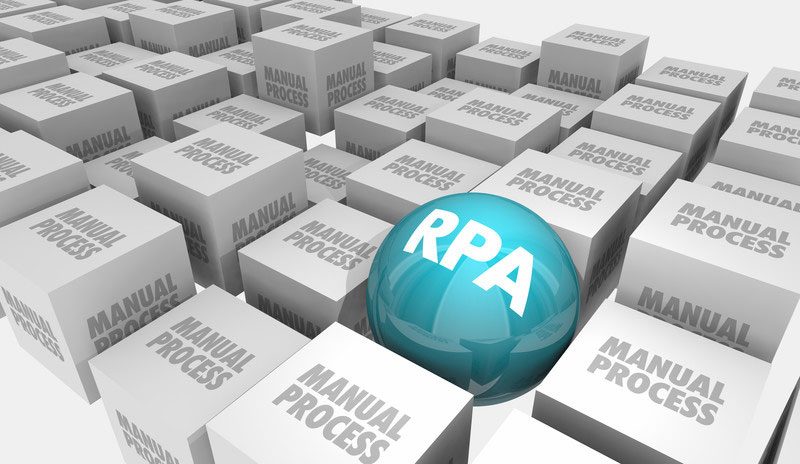Outsourcing of business processes to reliable BPO services is a common practice in many organizations. Innovative technologies like artificial intelligence and robotic process automation (RPA) have impacted the BPO industry greatly. RPA is an emerging form of business process automation that is based on the notions of software robots and can carry out the business processes that would normally be done by human beings. This is ideal for tasks that are repetitive and rules based.

Today, customers expect businesses to be technologically advanced and to meet customer expectations, many organizations are adopting RPA and other such sophisticated technologies. RPA has emerged as a new trend in the business process market that offers high value creations with significant cost savings and quicker time to value. The automation of business processes has changed the business model of BPO vendors and RPA is expected to gradually dominate the sector as well.
The Asia Pacific region is emerging as the fastest growing market for robotic process automation. But the question is whether the robotic software is programmed to successfully complete tasks performed by humans. Around the world businesses are investing on RPA and AI. The 2018 Harvey Nash/KPMG CIO survey identified that one third of Asia Pac CIOs i.e. 33 percent, are investing in RPA and 31 percent of CIOs worldwide said the same. 70 percent of IT leaders plan to invest in AI technologies. The speed of adoption of RPA is also notable and it is expected to reach $5 billion by 2024.
Implementation of RPA and AI is rising quickly because of the skill, scope of the Asia Pac workforce. UBS analyst Sundeep Gantori says that his organization’s analysis is that by 2025 China and India’s combined AI approach will exceed US’s pool. The huge size of tech talent pools across Asia Pac, combined with historically low unemployment rate in places like the US could make the Eastern hemisphere the breeding ground of RPA and AI activity.
Types of Businesses That Can Benefit from RPA
Many businesses take advantage of latest technology, namely, intelligent automation to improve their efficiency. Here are some examples:
- IT and Telecommunication Companies: IT or telecommunication companies require customer support that can be easily achieved with RPA software. For instance, it helps to create electronic tickets and responds to customers when they ask questions or request for service.
- Manufacturing Industry: Robots have been a part of the manufacturing industry since the 1960s; the trend still continues and have gradually started taking up more tasks.
- Retailers: With immense pressure to adopt digital customer channels, RPA helps retailers to fix legacy processes that are cost-effective to outsource. RPA helps in linking customer portals with back-end systems that have suffered from manual workaround and poor integration.
- Energy firms: Driven by the need to cut costs and transform their operating structure from a labour-intensive model, energy firms are among the first adopters of RPA.
- Healthcare: The healthcare industry has always been reluctant to adopt RPA to explore new opportunities. However, with the various healthcare reforms implemented, many organizations have started using RPA and other innovative technology to stay compliant and competitive. RPA could be very beneficial for the healthcare sector with its promise of delivering more intelligent operations by carrying out rules-based tasks at super speeds and creating more accurate and more meaningful data sets. It can also help extract data from disparate and legacy systems and consolidate it for categorization and analysis. This is especially relevant for value-based healthcare because it will help identify opportunities for population health initiatives, risk management, care intervention, reporting for reimbursement and so on.
A study by Daron Acemoglu and Pascual Restrepo on how RPA has affected labour market found that by implementing one robot per 1000 workers, the automotive industry reduced employment by 0.18 to 0.34 percent and reduced wages by 0.25 percent to 0.5 percent.
Marks and Spencer, UK recently replaced its customer support switchboard teams with AI technology and the customer support employees were assigned to handle in store customer engagement work. RPA helps to eliminate simple and repetitive tasks, allowing organizations to take their employees to compete in more innovative ways.
RPA Offers More Opportunity to Grow
With the rise in outsourcing, outsourcing models and methods are reinventing themselves to adapt to the market forces and disruptions. Deloitte’s Global Outsourcing Survey 2016 surveyed executives representing legacy functions like finance, HR, IT etc and the survey showed that outsourcing could drive innovation into businesses. The increased focus by organizations on process improvement and the desire for flexibility to expand have increased the need for technology-driven innovation. For the study, Deloitte approached industry leaders from organizations of various sizes and operational footprints in America, Europe and Asia.
RPA and such other advancements may eliminate simple, repetitive tasks and the challenge of BPO companies will be to identify the right opportunities as and when RPA frees up resources. A new set of BPO vendors has emerged that integrates RPA into their working system. Providers of BPO services will be looking at these new advancements as tools to use to become more strategic and innovative digital partners to their customers.



